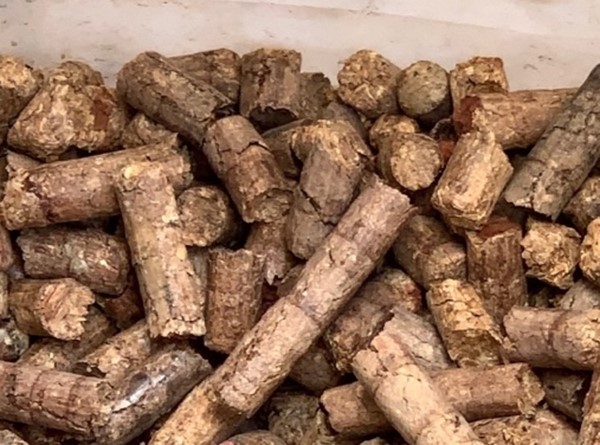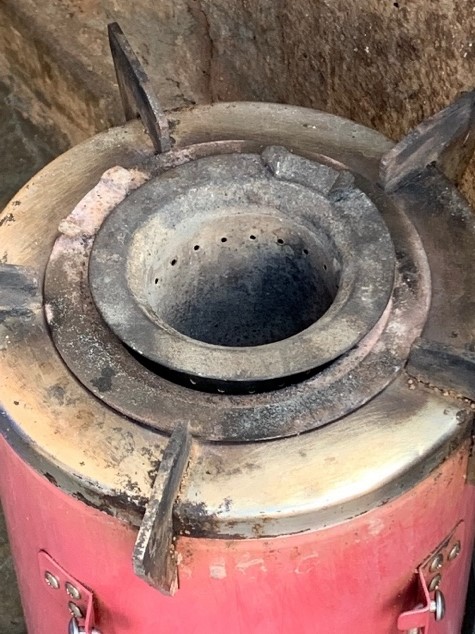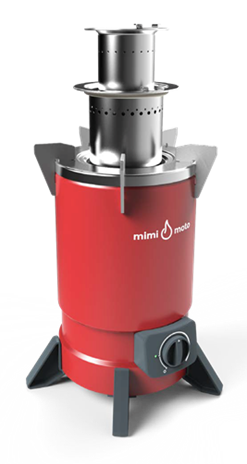Charcoal Users in Urban Malawi Receptive to Clean Cooking Alternative, Survey Finds
In urban Malawi, 9 out of 10 households rely on firewood and charcoal for cooking, exacerbating pressures on Malawi’s already dwindling forests. Despite banning the production, transport, and sale of unsustainably sourced charcoal, illegal trade is prominent across the country. To explore alternatives to charcoal for urban, middle-class households, social impact investment firm C-Quest Capital (CQC) conducted a pilot program that bundled pellet fuel with Mimi Moto’s forced air gasifier stove. The program’s limited but encouraging results suggest forced air gasifier pellet stoves could offer a viable clean cooking alternative for a niche consumer segment in Malawi and similar countries in the region.
The Mimi Moto is a powerful, compact, and durable forced air gasifier stove most often fueled by high-density pellets made from biomass, such as nut shells or ground and densified crop. Unlike burning wood directly over an open flame, gasification leads to a cleaner flame. In a laboratory setting, the Mimi Moto achieves the highest rating for efficiency, emissions, and indoor emissions, as per the International Standards Organization’s IWA cookstove performance protocol.
Between 2018 and 2019, Ener-G-Africa – an energy company co-founded by CQC and Malawian partners – sold 700 Mimi Moto stoves to consumers. In 2020, CQC followed up with 55 of these consumers to assess their experience using the stove. Ninety-six percent of cooks surveyed reported still using the Mimi Moto stove with 95% of cooks reporting it as their primary stove. Furthermore, 40% of cooks reported cooking exclusively on the Mimi Moto stove, demonstrating a preference for the Mimi Moto compared to the charcoal and wood stoves they had used prior to acquiring the Mimi Moto.
Fuel use shifts were also observed among Mimi Moto users. While 96% of the households reported cooking with charcoal prior to buying the Mimi Moto, the follow-up assessment revealed that 58% of cooks had decreased their use of charcoal and 40% had stopped using charcoal altogether. Although these findings are preliminary, the Mimi Moto’s ability to decrease, and even eliminate, a household’s use of charcoal further indicates the stove’s capacity as a clean cooking alternative for urban middle-class charcoal users.
Cooks were broadly enthusiastic about the Mimi Moto, especially because it saved them time. Ninety-six percent of cooks reported spending “a lot less” time cooking, allowing them to pursue valued activities, like attending social gatherings, fetching water, cleaning, and caring for children. Furthermore, the Mimi Moto stove made cooking more enjoyable and reduced the overall effort. All cooks reported that they would recommend the stove to others and cited a high demand for the stove among friend and neighbors, but affordability remains a challenge in the absence of financing options.
The pilot also revealed some noteworthy challenges associated with the introduction of the Mimi Moto. First, several users cited significant difficulty in obtaining pellets, highlighting the gaps in supply chains. Second, misuse of stoves due to improper or missing training led to technical failures. Lastly, there were cases of poor after-sales service, leaving users with unrepaired stoves despite being under warranty.
More rigorous research is needed to evaluate the robustness and longevity of these findings. The pilot relied solely on a follow-up, self-reported survey and one focus group. In the absence of a baseline survey, the pilot used self-reported recall survey questions to estimate time savings, stove and fuel use, and other measurements. Furthermore, the pilot could have been improved with the addition of observational and stove use measurements to bolster survey data.
Although limited, the results of this pilot are encouraging for scaling the forced air gasifier pellet stove market and reducing reliance on charcoal for cooking in urban Malawi and other countries in East Africa. Demand for pellets for the Mimi Moto has recently surged in Malawi, likely fueled by a government clamp down on illegal charcoal supply since December 2020. Ener-G-Africa and CQC remain firmly committed to meeting this increased demand through local production of best-in-class pellet stoves and ramping up pellet production from their facilities. As a result of consumer preferences and government policies that promote clean cooking, demand may increase for forced air gasifier pellet stoves like the Mimi Moto in urban Malawi and similar contexts in East Africa.



